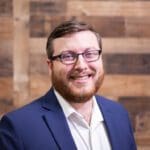When Gov. Greg Abbott called a special session of the Texas Legislature, one of the first items he added to lawmakers’ agenda was the passage of serious, substantive property tax reform to empower taxpayers to exercise greater say over tax increases.
Lt. Gov. Dan Patrick and the Texas Senate responded quickly and passed Senate Bill 1, a proposal by State Sen. Paul Bettencourt (R–Houston). If enacted into law, Bettencourt’s bill would lower the “rollback rate” to which city and county governments could increase taxes significantly. Should the city council or commissioners court propose a higher rate, an automatic election would be called in which citizens could approve or reject the increased tax burden.
Though some rural and moderate Republicans succeeded in weakening the legislation in the Texas Senate, the bill still represents a major victory for taxpayers—if it can make it through the Texas House.
During the regular session, similar legislation (also offered by Bettencourt) was long delayed in the House Committee on Ways and Means and then prevented from coming to the floor for a vote through collusion between House Speaker Joe Straus and Democrat lawmakers.
At that time, legislators who were opposed to their own taxpayers having greater say in tax rates were allowed to hide in the shadows, but during the special session there’s nowhere for them to hide. Abbott has forced lawmakers into the spotlight.
One of those lawmakers is Republican State Rep. Phil Stephenson of Wharton, who is now actively opposing property tax reform. On Tuesday, Stephenson voted against his own party and joined Democrat State Rep. Yvonne Davis (Dallas) in opposing a motion to pass SB 1 out of committee and recommend that it pass on the House floor.
Despite the “Nay” votes from Stephenson and Davis, the motion prevailed 8-2.
Stephenson’s district covers a portion of Fort Bend County where homeowners pay the highest total property tax bills of anyone in the state and the 16th highest taxes out of any county in the nation.
Since 2012, the average assessed property value in the county has increased by more than 35 percent with 20 percent of that happening within the last two years. The increases have gotten so bad that residents have petitioned, protested, pleaded to local and state officials for relief.
“Quite simply people are devastated and are fearful of being taxed out of their homes,” one Fort Bend resident told a local news outlet during the Senate Select Committee’s hearings on property tax reform.
Fort Bend County taxpayers have long demanded relief, but with his vote their representative in Austin has shown he simply isn’t listening.
Stephenson’s office did not respond to a request for comment.





